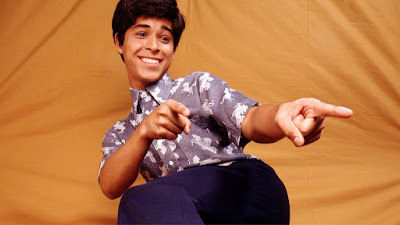When I was a kid, I used to get very frustrated when I couldn't convey my thoughts properly, or when people didn't understand me. Miscommunication, or simply lacking the ability to put my thoughts into words, was the worst feeling in the world.
So I decided to spend my life honing my wordsmithing. Never again would I be lacking for prose or precision. People would always know exactly what I wanted to say.
 |
| I wanted to be like Shakespeare, man. Master wordsmith! |
Right?
Well... no.
Moving to Japan put that all in a wet blanket and tossed it out the window.
 |
| A still shot of my language skills, shortly before their death |
Communication problems have phases.
Phase 1 is what I like to call the WTF Phase. In this phase, every word is a freight train coming at you at full speed, which means a full sentence will leave you floored in seconds. You're essentially made into a mute clown, because all you have is your gestures and your gibberish that nobody around you can understand. Nothing makes any sense, and you have to dance to get directions.
Oh, and if you're in Japan, you can't read, either. Every sign might as well be the glyphs on the Dead Sea Scrolls.
It feels a lot like being on a tiny boat in a vast ocean in the middle of a hurricane. You struggle and struggle just to stay above water, let alone on staying on your boat, let alone focusing on getting to your destination.
It sucks.
Phase 2 is what I like to call the Drunken Haze Phase. In this phase, you can understand general concepts when people talk to you - sometimes - and the language doesn't sound like a garbled radio anymore. You yourself can utter basic subjects and verbs, so you can neanderthal yourself through everyday life using phrases like "That. Need." or "Go here. How?" Maybe you can read a little.
Things kind of make sense, but also not really. I've never done drugs, but I imagine that it's a lot like being high, or going on an acid trip. The world is kind of comprehensible, but also very twisted, and your window of observation is definitely not accurate. You can stumble your way through life - like a half-drunken mess brute forcing your way through everything, maybe - but you can still sort of do it!
You're still on your tiny boat in the middle of the ocean, but the hurricane isn't there harassing you anymore.
Phase 3 is what I like to call the Fez Phase. If you've ever seen That 70's Show, Fez - a nickname that's short for Foreign Exchange Student - is the token comedy relief character. He's allowed to say outrageous things and be oblivious to cultural conventions and break social rules and generally just be a goofball without anyone thinking about it too much.
This is you when you can speak and read well enough.
Your grammar or vocabulary is still a bit lacking, you have an accent, you can read a decent amount. You're functioning! But you're still not a part of the system. Since you can talk, though, people might not be afraid to approach you anymore. You get to teach people about the way you do things in your country, you get to break rules and societal expectations and be the "fun guy" to be around, and you can finally be a part of society, albeit in a weird and off-beat way.
You're on the boat, and now you have a paddle, too.
I think there is a Phase 4, which I would call the Zeus Phase, because you might as well be a God if you get there. This means perfect speaking and comprehension skills, being able to read everything, and maybe even losing your accent. I know people who have done this, but they are superhuman, and quite frankly I think they are just a bunch of stupid overachievers. Nerds.
I'm not jealous, ok!?
Those people are cruisin', though. Their boat has a motor on it.
While going through these phases, I realized that communication is a lot more than words. Even if you explain yourself to someone with absolutely perfect clarity, they still might not see where you're coming from, because their customs and ideology and whatever else might not gel with what you're saying. And even if you can't say a word, sometimes you can get your point across anyway.
Conveying ideas to other people is a lot more than just stringing words together. Communication is a complicated beast, made up of many different layers. It helps to have the deeper layers mastered, but the outer ones matter just as much. Smiling at people to let them know you're not uncomfortable means a lot, for example, and you can always tell a lot about what people are feeling from looking at their eyes, which I think show more genuine emotion than any words can or do.
Personally, I feel like I almost lost sight of that in my pursuit of perfect prose.
I'm still paddling my boat. I don't think I'll ever get a motor on mine. But that's ok. I like being the goofball anyway.
The few times I have returned home, suddenly regaining the ability to speak coherent sentences has been startling, like evolving from a monkey to a man in the span of a 20 hour flight.
Never underestimate how good it feels to be able to communicate. I love Japan, but that's one thing I'm looking forward to when I go home again.


















